Abstract
This report reexamines experimentally the problem of competitive indeterminacy in mixed-species populations of the flour beetles, Tribolium confusum and T. castaneum. Indeterminacy takes the form of alternative competitive outcomes: in some replicate cultures one species exterminates the other with a probability, say p, whereas in others, the opposing species wins with a complementary probability, 1-p. The conventional explanation for this is the genetic founder effect hypothesis--an explanation based on genetic stochasticity. The experiment reported here partitioned indeterminacy into founder effect and nonfounder effect components. The results implicate demographic stochasticity, not classical genetic founder effect, as a factor influencing the identity of the winning species.
Full text
PDF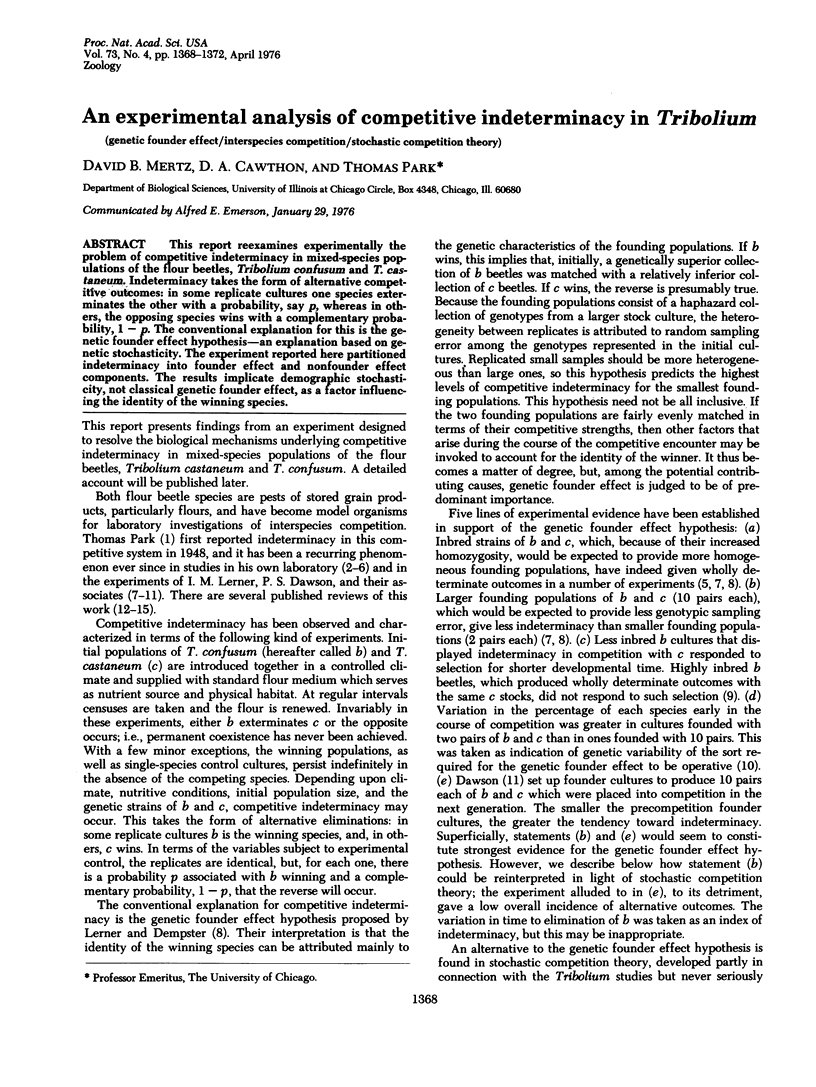
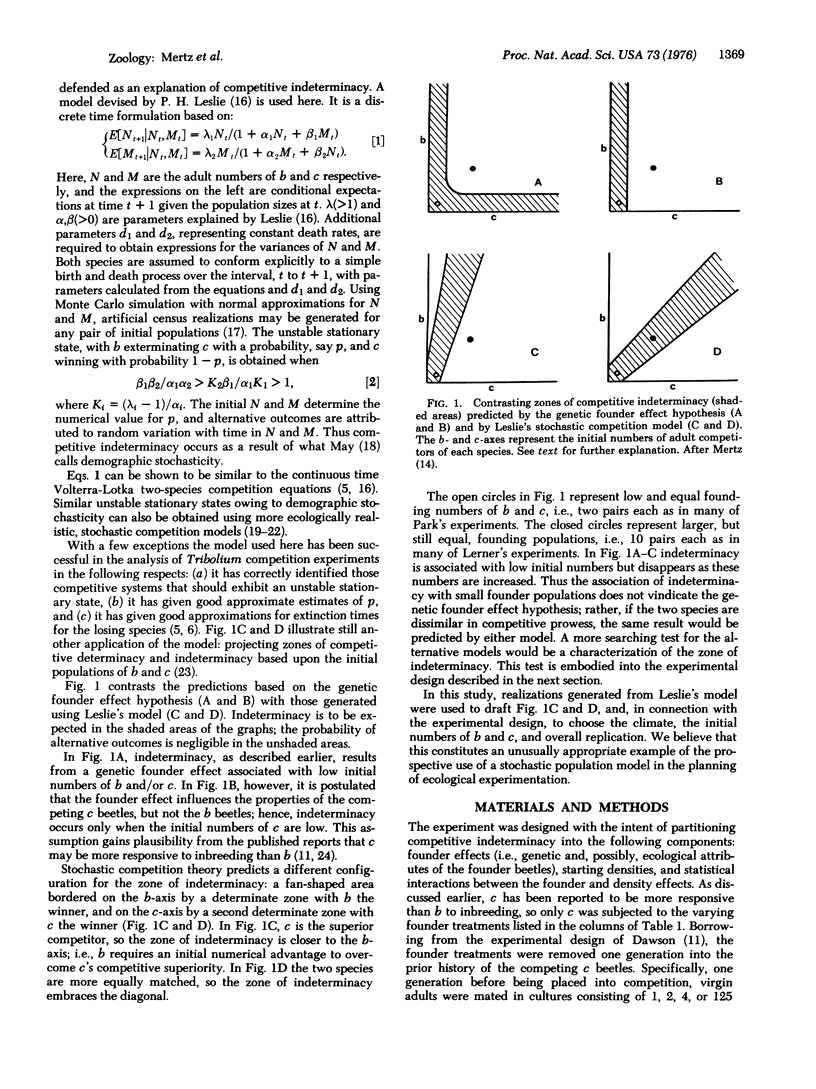
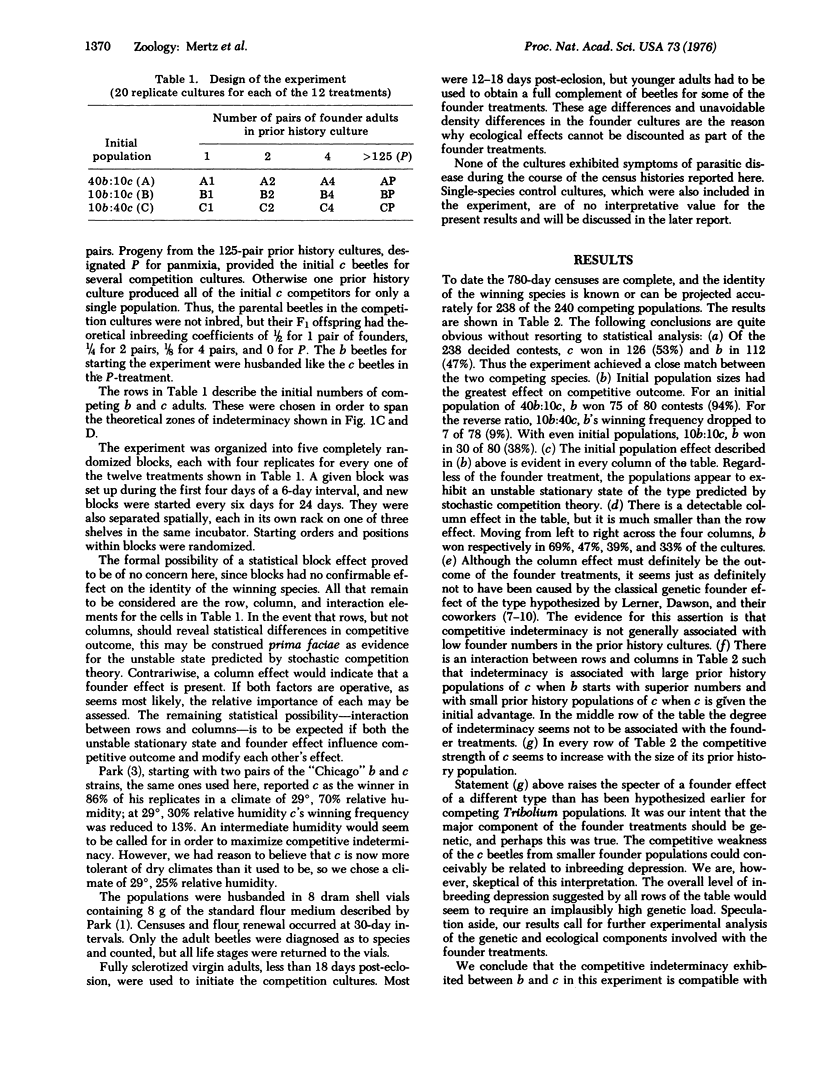
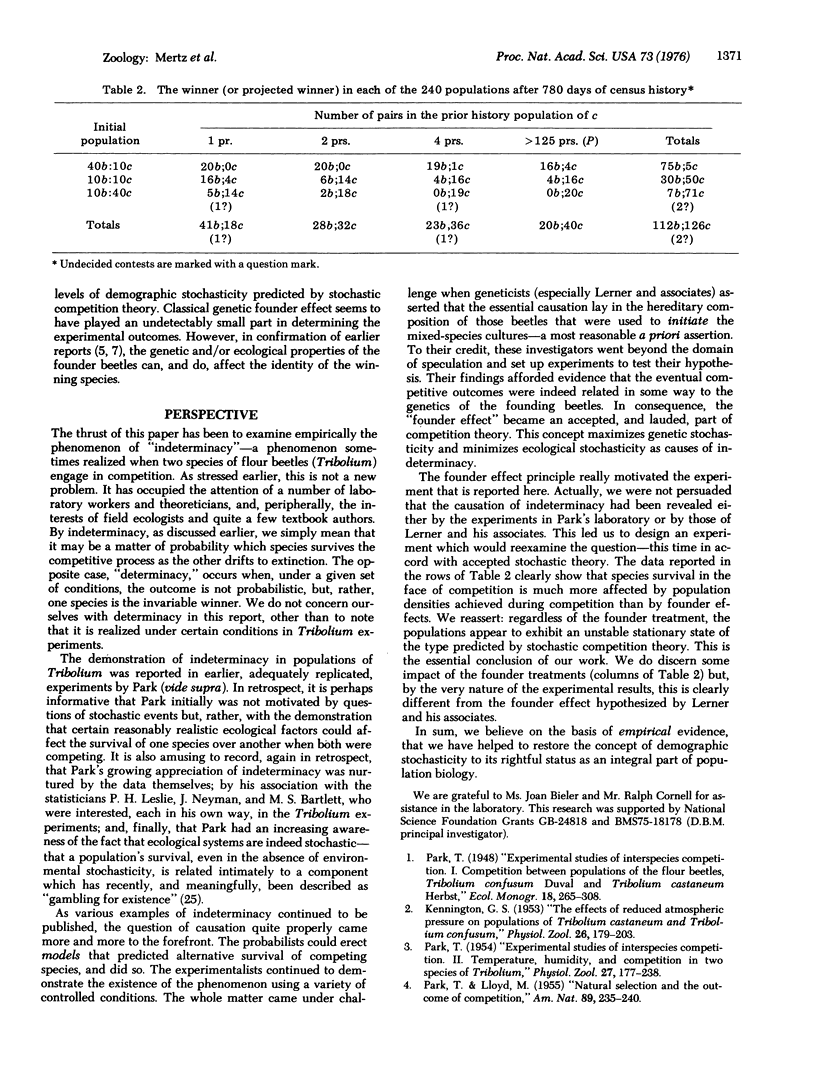
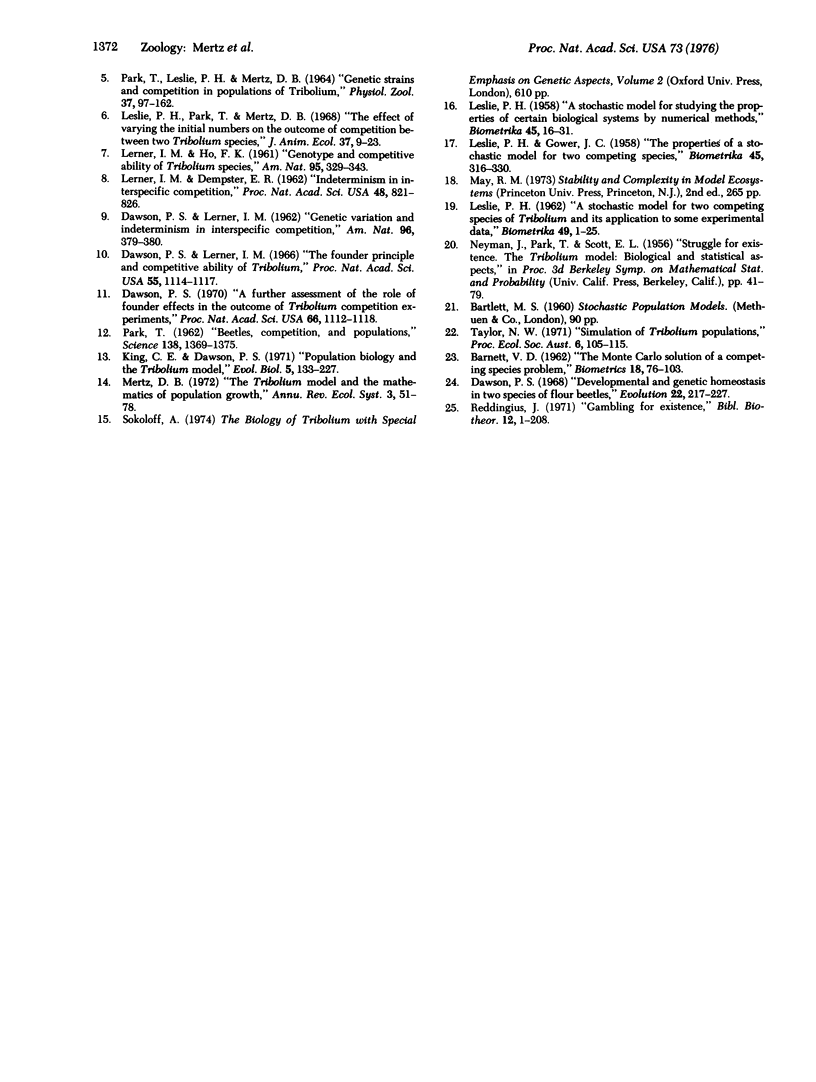
Selected References
These references are in PubMed. This may not be the complete list of references from this article.
- Dawson P. S. A FURTHER ASSESSMENT OF THE ROLE OF FOUNDER EFFECTS IN THE OUTCOME OF Tribolium COMPETITION EXPERIMENTS. Proc Natl Acad Sci U S A. 1970 Aug;66(4):1112–1118. doi: 10.1073/pnas.66.4.1112. [DOI] [PMC free article] [PubMed] [Google Scholar]
- Dawson P. S., Lerner I. M. The founder principle and competitive ability of tribolium. Proc Natl Acad Sci U S A. 1966 May;55(5):1114–1117. doi: 10.1073/pnas.55.5.1114. [DOI] [PMC free article] [PubMed] [Google Scholar]
- Lerner I. M., Dempster E. R. INDETERMINISM IN INTERSPECIFIC COMPETITION. Proc Natl Acad Sci U S A. 1962 May;48(5):821–826. doi: 10.1073/pnas.48.5.821. [DOI] [PMC free article] [PubMed] [Google Scholar]
- Park T. Beetles, Competition, and Populations: An intricate ecological phenomenon is brought into the laboratory and studied as an experimental model. Science. 1962 Dec 28;138(3548):1369–1375. doi: 10.1126/science.138.3548.1369. [DOI] [PubMed] [Google Scholar]


